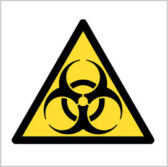 The Defense Advanced Research Projects Agency will host a Proposers Day on Feb. 23 in Arlington, Virginia to discuss a program that aims to develop technology that can detect whether an individual has been exposed to materials associated with weapons of mass destruction.
The Defense Advanced Research Projects Agency will host a Proposers Day on Feb. 23 in Arlington, Virginia to discuss a program that aims to develop technology that can detect whether an individual has been exposed to materials associated with weapons of mass destruction.
DARPA said Friday the Epigenetic Characterization and Observation (ECHO) program would create a portable platform designed to read a person’s epigenome, a biological “record keeper” of environmental conditions that leave marks on human DNA.
“We hope that with the capabilities developed within ECHO, someone in the field will immediately know if a suspected adversary has handled or been exposed to threat agents,” said Eric Van Gieson, ECHO program manager at DARPA.
“The same technology could also serve as a diagnostic tool for our own troops, to diagnose infectious disease or reveal exposure to threat agents, so that medical countermeasures can be applied in time to make a difference,” Gieson added.
ECHO researchers will work over a four-year period to identify epigenetic signatures created through exposure to threat agents as well as build technology that could show the exact type and time of exposure.
DARPA also wants the device to be able to conduct multiple molecular analyses and onboard bioinformatics within 30 minutes, as well as deliver the technology in a portable system that would require minimal training.
The department seeks to discuss research plans, potential challenges and social implications of ECHO with ethical and legal experts and the scientific community.




